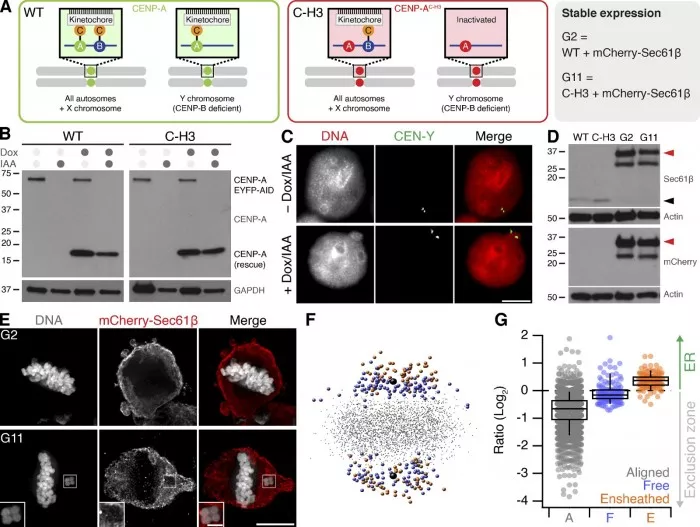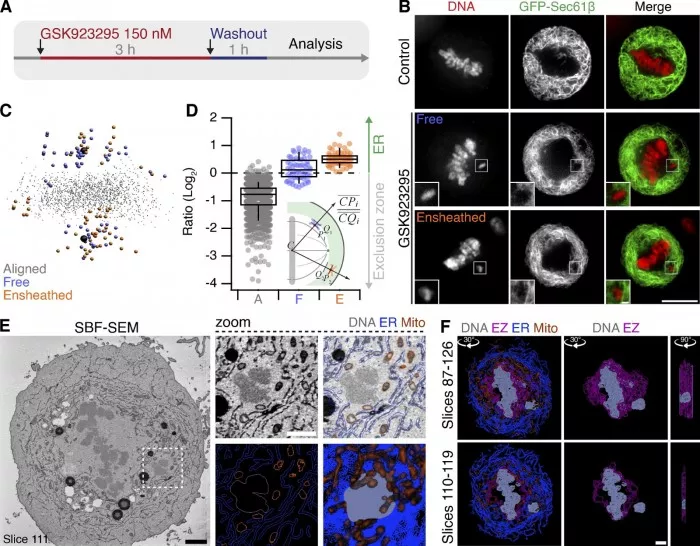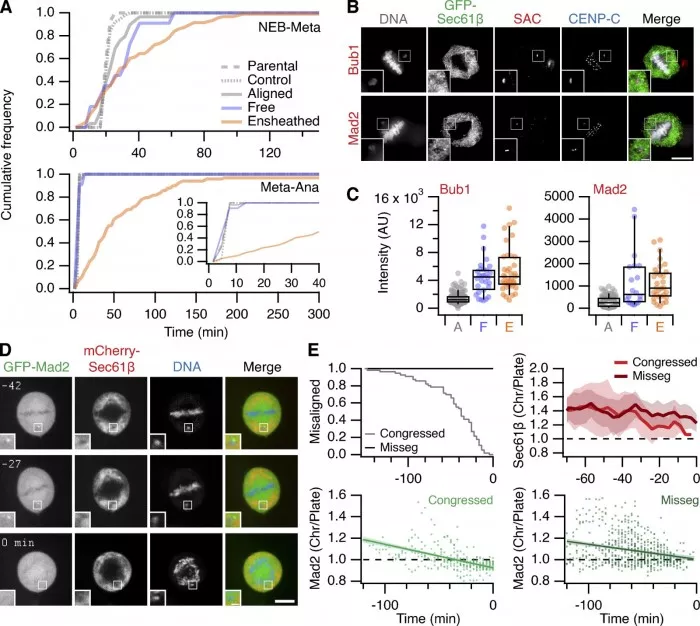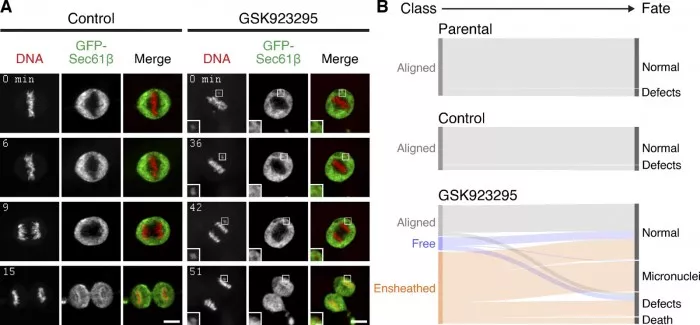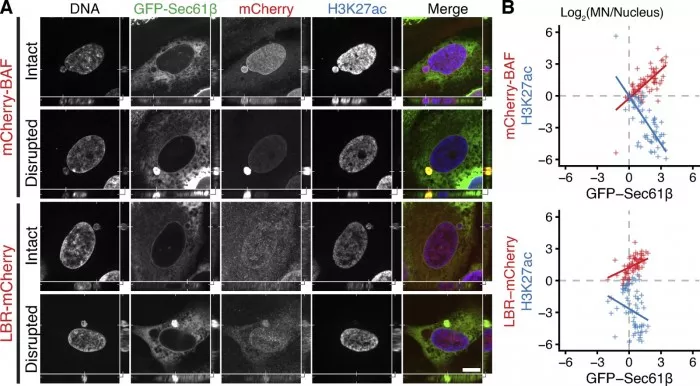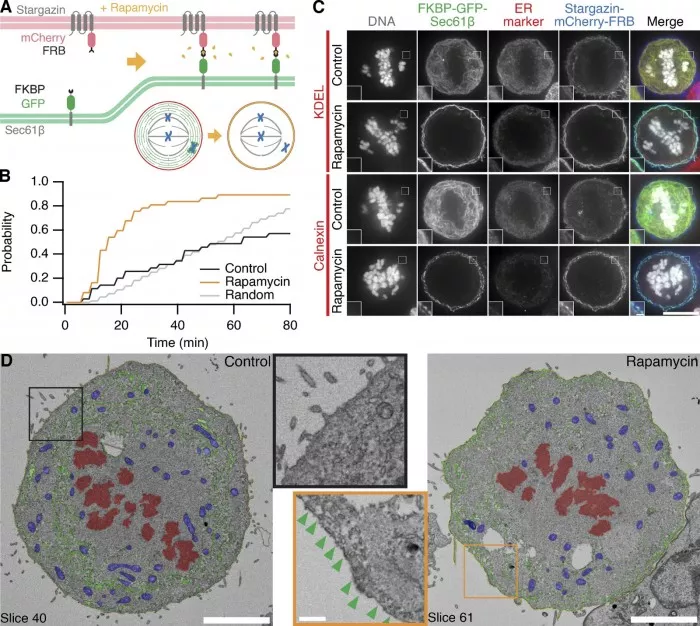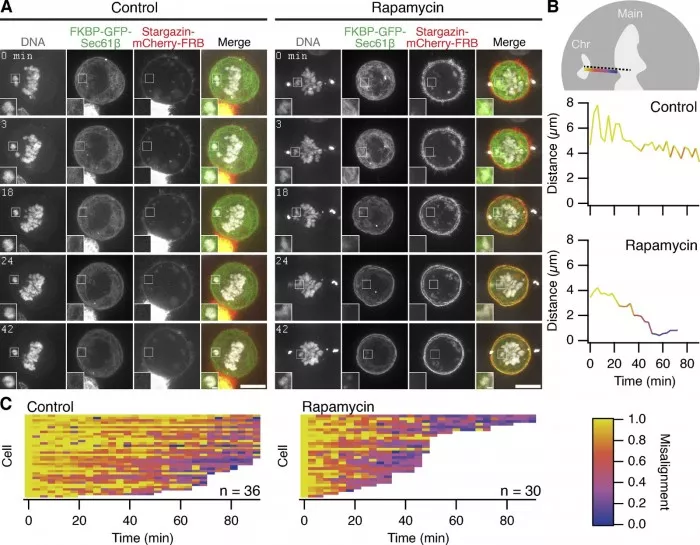In an article published in the journal Cell Biology on April 29, 2022, the University of Warwick research team determined the origin of cancer through cell "surgery" It is reported that if abnormalities occur during mitosis, the two cells may not be able to obtain the correct number of chromosomes. Understanding the causes and ways of abnormal cell division may help to find new ways to prevent cancer.
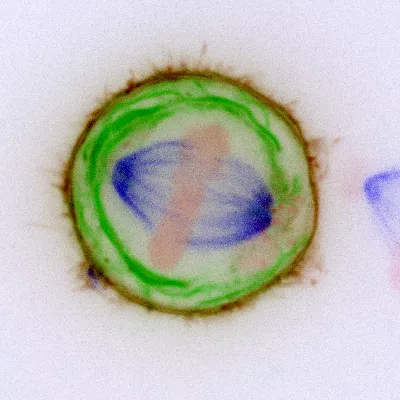
Chromosome (pink), spindle (blue) and cell membrane (green)
If chromosomes are "lost" in this process, some cells may turn into cancer cells during division. University of Warwick ) This new study reveals how they happen and how they recover.
Study image - 1: out of the exclusion zone, misaligned chromosomes are wrapped in the inner membrane
Before mitosis, cells first replicate all chromosomes and then distribute the copies to two new cells - and a protein structure called the spindle plays an important role (pulling the chromosome to both ends before division).
Figure 2: induction of misaligned chromosomes in stable diploid RPE1 cells with cnep-e inhibitors.
However, the process of cell division is not always so smooth. Sometimes daughter cells will eventually get the wrong number of chromosomes and have a transmission impact on their function and future division. This "aneuploidy" can be found in more than 2 / 3 of solid tumors.
Fig. 3: effect of sheath chromosome on cell division
That's why investigating how such accidents happen may help scientists find new ways to prevent some forms of cancer. The good news is that researchers at the University of Warwick have just presented their latest findings.
Figure 4: sheath chromosome promotes micronucleus formation
The new detail is that the staining will tangle in the dense membrane around the spindle, preventing them from being sorted into daughter cells. When researchers use "cell device repositioning" technology to untie the entanglement, cell division will become healthy again.
Figure 5: the wrong separation of sheath chromosome will lead to the destruction of NE in micronucleus.
Corresponding author Stephen Royle pointed out that many previous studies on cell division have focused on spindles - such as how they work and why they make mistakes in carcinogenesis.
Figure 6: inducible relocation of ER in mitotic cells
The new study shifted its focus to the inner membrane during cell division, and finally made it clear that the chromosomes lost in this way, or the direct risk factor of cell carcinogenesis.
Figure 7: rescue sheath chromosome by induced relocation of ER.
At present, researchers are trying to understand how chromosomes are tangled, but a lot of in-depth research is needed to find new methods that can help repair the process and prevent some forms of cancer.
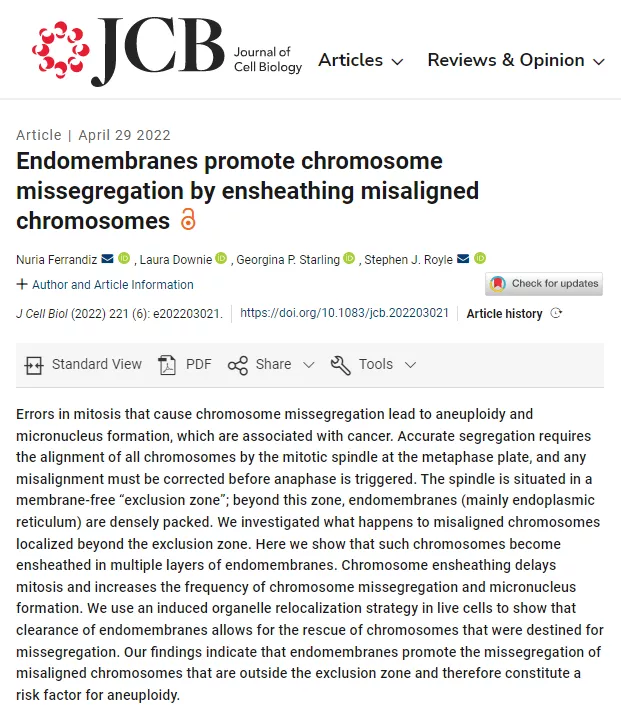
Details of this study have been published in the recently published journal of cell biology( https://rupress.org/jcb/article/221/6/e202203021/213189/Endomembranes-promote-chromosome-missegregation-by ) ) Come on.
The original title was endomembranes promote chromosome Missegregation by ensheathing misaligned chromosomes.

